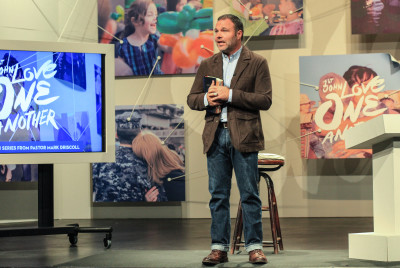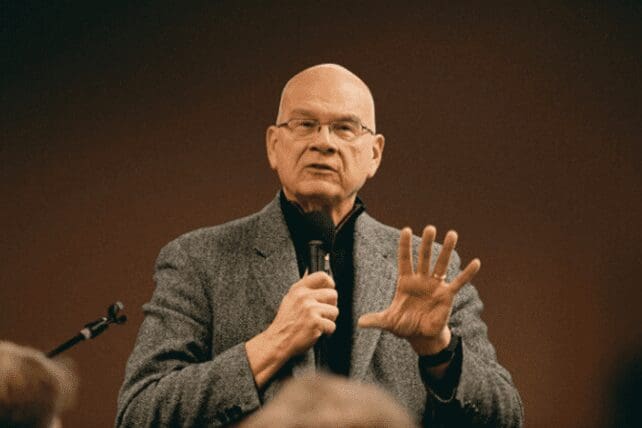(RNS) — Wyatt Reynolds spent years trying to save his soul. As a 7-year-old, he prayed nightly before bed. He went to church faithfully in his south Georgia community but was never convinced that he had truly given his heart to Jesus.
Then, barely a teen, Reynolds began listening on his iPod Nano to a daily radio show run by Albert Mohler, the president of Southern Baptist Seminary, and went on to read the works of John Piper, R.C. Sproul and other contemporary Reformed Christian theologians and pastors. Through them, he found and embraced the Calvinist doctrines of grace.
“That was super liberating for me as an incredibly angsty middle schooler,” said Reynolds, now a Ph.D. candidate at Columbia University in New York.
Reynolds had joined the ranks of the “Young, Restless, and Reformed” — a renewal movement born in the early 2000s and fueled by scores of his evangelical Christian peers who had grown up with largely theology-free, self-help-y sermons and fundamentalist shibboleths of evangelical churches. Instead, these young Christians drank deeply of a theology named for the 16th-century French Protestant John Calvin that was brought to America by the Puritans.
At the time Reynolds joined, the Calvinist renewal movement was a juggernaut that generated a seemingly endless stream of conferences, books, videos and social media posts. As charismatic and intellectual as they were conservative, its leaders touted countercultural ideas such as complementarianism — the belief that, while the sexes are equal, God put men in charge of the church and the home. Reformed renewal became a powerful lifestyle brand that united Christians across denominations and generations.

Mark Driscoll speaks at Mars Hill Church in Seattle. Photo courtesy of Mars Hill Church
With that success came spectacular failures. In the 2010s, many of the movement’s leaders would eventually fall from grace. Among them: Mark Driscoll, founder of the now-shuttered Seattle megachurch Mars Hill; prominent pastor Tullian Tchividjian admitted to sexual misconduct; C.J. Mahaney was accused of covering up abuses in his church network; James MacDonald was terminated for a “substantial pattern of sinful behavior.”
Joshua Harris, whose bestselling 1997 book “I Kissed Dating Goodbye” was a bible of the purity culture, has left the Christian faith altogether.
This spring, the movement suffered another blow with the death of Tim Keller, a retired New York megachurch pastor, bestselling author and co-founder of The Gospel Coalition, one of the flagship institutions of the Reformed resurgence. Known for his intellectual curiosity and personal kindness, Keller was diagnosed with pancreatic cancer in 2020 and died in late May.
While the movement remains influential, the controversies and losses raise questions about its future.
“What happens when you wake one morning and realize that if something’s going to be reformed,” said author and speaker Hannah Anderson, who was heavily influenced by the Reformed resurgence, “you’re the target of the reforming?”
Anderson said she first encountered Calvinist theology as a college student through Minnesota pastor Piper’s 1986 book “Desiring God.” She’d come from a fundamentalist background where the overwhelming message was that a person could never be good enough to earn God’s love.
In Calvinism, she found a doctrine of salvation — or “soteriology,” as theologians put it — that said it was God whose act of bestowing grace saved people, not human effort. “Anything that spoke of grace was revelatory,” she said. “The grace part of reformed soteriology felt like water to thirsty people.”

